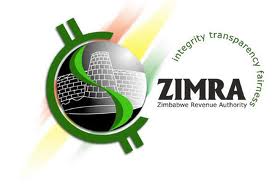
The Sunday Mail

THE obtaining punitive presumptive tax regime being levied by the Zimbabwe Revenue Authority (Zimra) on Small to Medium Enterprises (SMEs), some of which generate less than US$200 per month, is forcing most of the businesses to retreat to the informal recesses of the economy, prejudicing the national purse of potential revenue.
Government estimates suggest that more than US$7 billion is currently circulating in the informal sector.
Tax authorities are tightening the noose and targeting enterprises that have not been paying taxes in order to shore up State coffers.
Presumptive tax for local businesses — restaurants, bottle stores, cottage industries, hair salons and commuter omnibus operators — was introduced in 2005.
The levy differs with the type of business activity but it generally ranges from US$300 to US$2 500 per quarter, figures that Small to Medium Enterprises chamber president Mr Daniel Chinyemba believes are unrealistic and “out of reach for many”.
“Our concern is that the taxes charged by Zimra are not realistic. Presumptive tax for saloons, for instance, is US$1 500 per quarter, which is virtually impossible to satisfy. These taxes are paid by SMEs in both rural areas and in towns and they are grossly unfair.
“Other areas overcharged are driving schools (from) US$500 to US$600, transport US$1 000 to US$2 500 depending on class of vehicle.
“We should pay taxes to Government, but realistic taxes. Remember, there are more than 2,9 million SMEs in Zimbabwe and if taxes were realistic and all paid, then Government stands to benefit a lot of revenue . . .
“A number of SMEs throughout the country are closing down by the day, but due to their innumerable numbers, it is hardly noticeable. The reasons are a combination of factors, chief among them being the Zimra threat,” said Mr Chinyemba.
He noted that the present tax framework needs to be revised.
Added Mr Chinyemba: “What most SMEs are doing is not real business but a fight for survival. We are trying to provide a response to unemployment just as we did in 2008 when there was nothing on the shelves. We should not be punished for aiding the authorities on putting the country back on its feet.
“We are not objecting to formalisation at all but we are simply saying those who implement it must be reasonable, set realistic figures and involve all stakeholders in the planning exercise. Who does not know that large corporates are closing down whilst SMEs are thriving?”
Small to Medium Enterprises and Co-operatives Development Minister Mrs Sithembiso Nyoni said Government was working on formulating a reasonable tax framework with Zimra.
“The taxes are too high for the SMEs; most of them cannot afford it. Zimra should try to come up with strategies and initiatives to persuade them to pay tax or come up with tax incentives and benefits,” she said, adding that high taxes are the reason why most SMEs do not bank their money.
Minister Nyoni said 46 percent of the 4,7 million people employed in the SMEs are excluded from the banking system, effectively putting them outside the mainstream economy.
Government is of the opinion that it will be easier to tap into the US$7,4 billion circulating in the informal sector if Zimra offers incentives to SMEs.
According to statistics taken by World Bank in the Finscorp Worldbank Survey 2012, some of these SMEs generate as little as US$200 per month.
In India, the Micro and Small Enterprises (MSEs) sector plays a pivotal role in the overall industrial economy of the country. It is estimated that in terms of value, the sector accounts for about 39 percent of manufacturing output and around 33 percent of the total export of the country. Global trends suggest that small businesses are the biggest contributor to the economy of any country.



